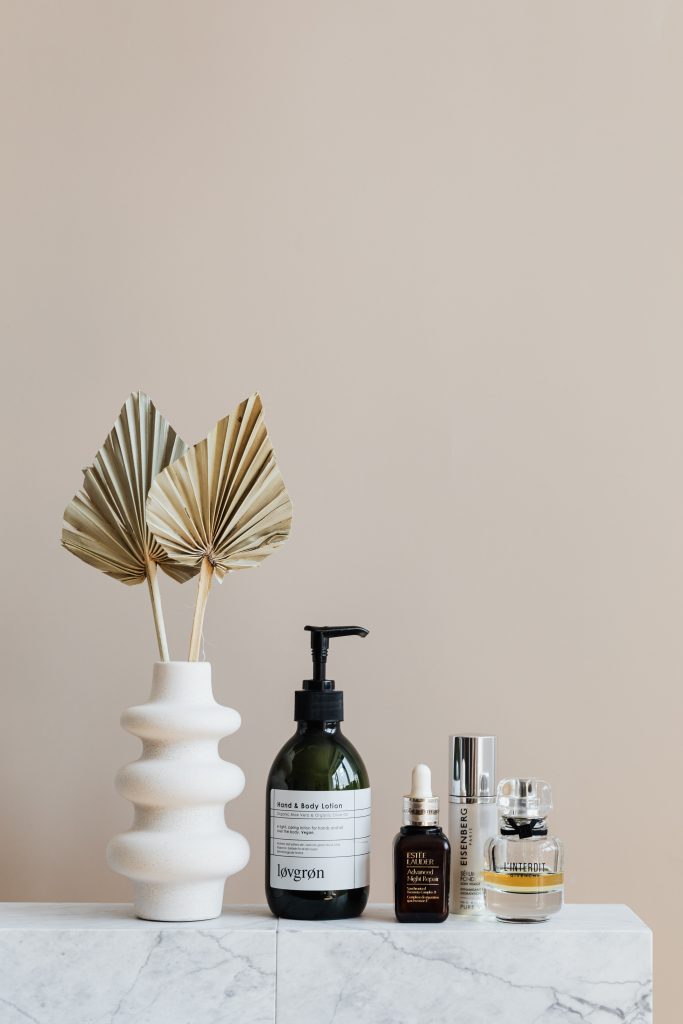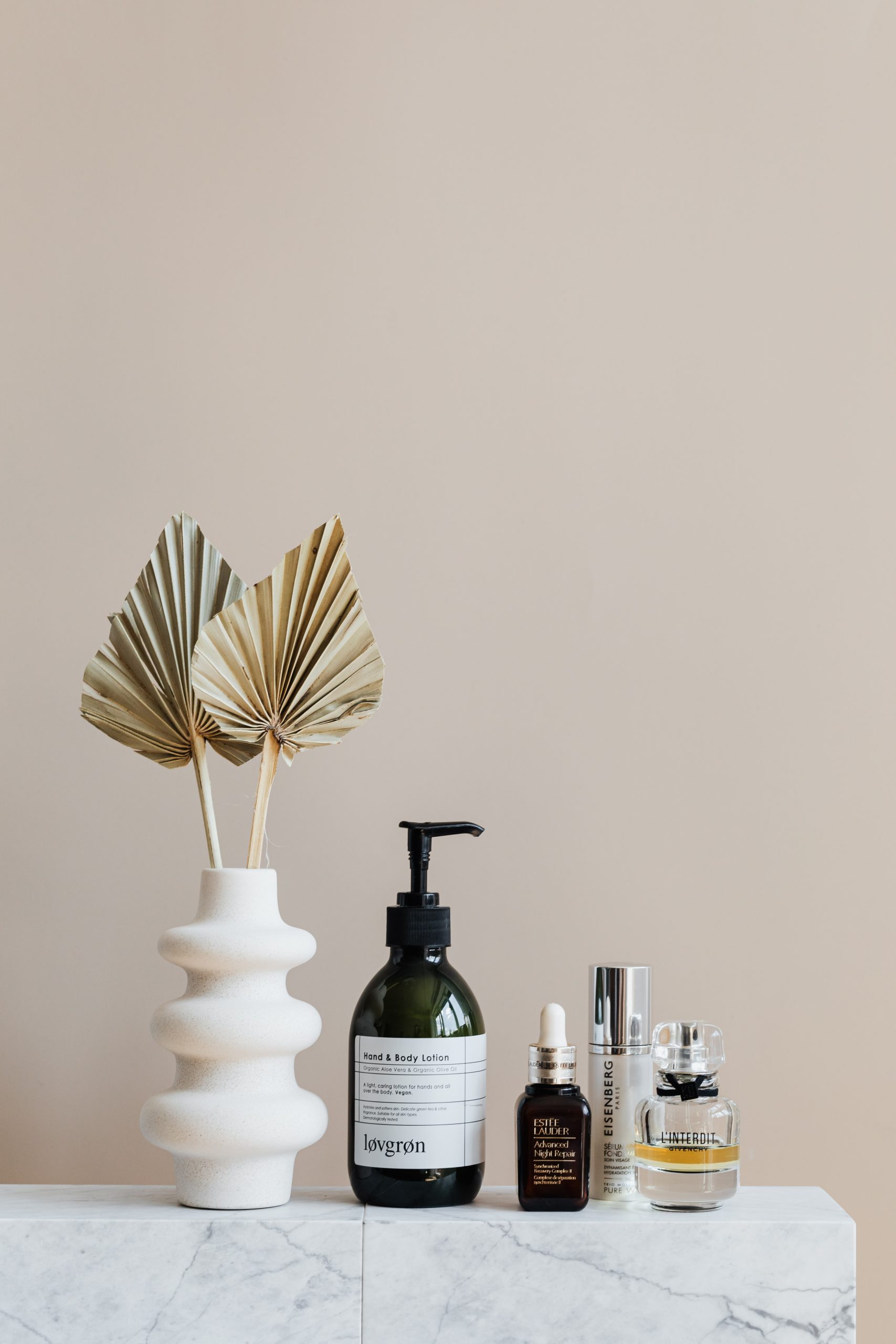Are you tired of trying various skincare products and routines without achieving the desired results? If so, you’re not alone. With so many options available, it can be overwhelming to determine the best skincare routine for your specific skin type. Whether you have dry, oily, combination, or sensitive skin, finding the right products and steps to follow can make a significant difference in achieving and maintaining a healthy and glowing complexion. In this article, we will discuss the best skincare routine for your skin type and provide you with helpful tips to enhance your skincare regimen. Get ready to unlock the secret to radiant and beautiful skin!
Understanding Your Skin Type
Knowing your skin type is crucial when it comes to developing an effective skincare routine. Everyone’s skin is unique, and understanding your specific needs will help you choose the right products and treatments. There are five main skin types: normal, dry, oily, combination, and sensitive. Let’s dive into each one and explore the best ways to care for them.
Normal Skin
If you have normal skin, consider yourself lucky! This skin type is well-balanced and neither too oily nor too dry. Normal skin typically has few imperfections and a smooth texture. To maintain the health and vitality of your skin, it’s important to follow a consistent skincare routine.
Dry Skin
Dry skin is characterized by a lack of moisture and can often feel tight and flaky. Those with dry skin may experience itchiness and a dull complexion. To combat these concerns, a skincare routine focused on hydration is key.
Oily Skin
On the other end of the spectrum, oily skin is prone to overproduction of sebum, leaving the skin looking shiny and often leading to clogged pores and breakouts. Managing excess oil and keeping the skin balanced is the primary goal for those with oily skin.
Combination Skin
Combination skin is a mix of both dry and oily areas. Typically, the T-zone (the forehead, nose, and chin) is prone to oiliness, while the cheeks can be dry or normal. Finding the right products to address both areas of concern is essential for those with combination skin.
Sensitive Skin
Sensitive skin is easily irritated and prone to redness, reactions, and inflammation. Those with sensitive skin must be mindful of the products they use, as certain ingredients and formulations can cause adverse reactions. A gentle and soothing skincare routine is key for sensitive skin types.
General Skincare Tips
Regardless of your skin type, there are some general skincare tips that apply to everyone. These tips will help you maintain the health and appearance of your skin.
Cleansing
Cleansing is the foundation of any skincare routine. It removes impurities, excess oil, and traces of makeup. Opt for a gentle cleanser that won’t strip the skin of its natural oils. Cleanse your face twice a day, morning and night, to keep your skin fresh and clean.
Exfoliating
Exfoliation is an additional step that can be beneficial for all skin types. By sloughing off dead skin cells, you allow for better absorption of other skincare products and promote cell turnover. However, be mindful not to over-exfoliate, as it can lead to irritation and dryness. Aim to exfoliate one to two times per week with a gentle exfoliant.
Moisturizing
Moisturizing is essential to replenish and lock in hydration. Even if you have oily skin, moisturizing is crucial to maintain a healthy moisture barrier. Look for a lightweight, non-comedogenic moisturizer suited to your skin type and use it twice a day, morning and night.
Protecting from Sun
Protecting your skin from the sun’s harmful rays is vital to prevent premature aging, sunburn, and the risk of skin cancer. Regardless of your skin type, always use a broad-spectrum sunscreen with an SPF of 30 or higher. Apply it generously and reapply every two hours, especially if you’re spending prolonged periods outdoors.

Skincare Routine for Normal Skin
Having normal skin means you have the flexibility to choose from a wide range of skincare products. Here’s a simple and effective skincare routine for normal skin:
Cleansing
Start off your routine by cleansing your face with a gentle facial cleanser. Look for a product that suits your personal preferences and make sure it leaves your skin feeling clean and refreshed.
Toning
After cleansing, tone your skin using a mild toner. This step helps balance the pH of your skin and further removes any leftover impurities or cleanser residue.
Moisturizing
Apply a lightweight moisturizer to hydrate your skin and lock in moisture. Look for a moisturizer that suits your skin type and preferences. Massage it gently into your skin using upward, circular motions.
Weekly Masks
Indulge in a weekly face mask treatment to provide extra nourishment and relaxation for your skin. Choose a mask that addresses your specific concerns, whether it’s hydration, brightening, or clarifying.
Skincare Routine for Dry Skin
If you have dry skin, you’ll want to focus on intense hydration and nourishment. Here’s a skincare routine tailored to address the needs of dry skin:
Gentle Cleansers
Opt for cream or milk cleansers that won’t strip away your skin’s natural oils. Look for ingredients like ceramides or hyaluronic acid, which help restore moisture to the skin while cleansing.
Hydrating Toners
Use a hydrating toner to prep your skin for the following steps. Look for toners with ingredients like rose water or aloe vera to soothe and hydrate your skin.
Rich Moisturizers
For dry skin, opt for rich and emollient moisturizers that provide deep hydration. Look for ingredients like shea butter, cocoa butter, or oils such as jojoba or almond.
Nourishing Serums
Incorporate a nourishing serum into your routine to provide an extra boost of hydration and target specific concerns. Look for serums containing hyaluronic acid or vitamin E to moisturize and protect your skin.
Natural Oils
Consider using natural oils as an additional step in your routine. Oils like argan oil or rosehip oil can provide intense hydration and nourishment. Apply a few drops to your face and gently massage it in.
Avoid Harsh Ingredients
Steer clear of skincare products that contain harsh ingredients such as alcohol or fragrances, as they can further dry out and irritate your skin. Look for products labeled “fragrance-free” or “suitable for sensitive skin” to ensure they won’t cause any unwanted reactions.

Skincare Routine for Oily Skin
Managing excess oil and maintaining balance is crucial for those with oily skin. Here’s a skincare routine specifically tailored to address the needs of oily skin:
Oil-Free Cleansers
Choose oil-free cleansers specifically formulated for oily skin. These cleansers help remove excess sebum and impurities without leaving the skin feeling dry or irritated.
Mattifying Toners
Use toners that contain ingredients like witch hazel or tea tree oil to help control oil production and minimize the appearance of pores. Look for toning products with mattifying properties.
Lightweight Moisturizers
Even if you have oily skin, moisturizing is still essential. Opt for lightweight, oil-free moisturizers that won’t clog your pores or contribute to excess shine.
Exfoliation
Exfoliating regularly helps remove dead skin cells and unclog pores. Choose gentle exfoliators containing ingredients like salicylic acid or enzymes to help control oil and minimize breakouts.
Clay Masks
Incorporate the use of clay masks into your routine to absorb excess oil and impurities. Look for masks formulated with ingredients like kaolin or bentonite clay.
Oil-Control Products
Consider using oil-control products throughout the day to help control shine. Oil-absorbing sheets or blotting papers can be a handy option to reduce excess oil without disturbing your makeup.
Skincare Routine for Combination Skin
Combination skin requires a delicate balance to address both oily and dry areas. Here’s a skincare routine designed to cater specifically to combination skin:
Balancing Cleansers
Use gentle cleansers that won’t strip away your skin’s natural oils but are still effective in removing excess sebum in the oily areas. Look for cleansers labeled as “balancing” or “suitable for combination skin.”
Dual-Phase Toners
Opt for toners that have a dual-phase formula to address both dry and oily areas of your skin. Look for toners with hydrating ingredients like rose water or chamomile.
Lightweight Moisturizers
Choose lightweight moisturizers that provide adequate hydration without leaving a greasy residue. Look for oil-free or gel-based moisturizers that are suitable for combination skin.
Spot Treatment for Oiliness
If you have areas prone to oiliness, consider using targeted spot treatments to control shine. Look for products containing salicylic acid or witch hazel to minimize breakouts and regulate oil production.
Hydration for Dry Areas
Address the dry areas of your skin by adding extra hydration. Consider using hydrating serums or moisturizers with ingredients like hyaluronic acid or glycerin to plump and moisturize.
Weekly Exfoliation
Incorporate weekly exfoliation into your routine to promote cell turnover and keep your skin smooth and radiant. Look for gentle exfoliators that won’t be too harsh on your skin.

Skincare Routine for Sensitive Skin
Sensitive skin requires extra care and attention to avoid irritation and reactions. Here’s a gentle skincare routine suitable for sensitive skin types:
Gentle Cleansers
Stick to gentle and fragrance-free cleansers that won’t disrupt the delicate balance of your skin. Look for products specifically formulated for sensitive skin, as they are usually free of potential irritants.
Alcohol-Free Toners
Avoid toners that contain alcohol, as they can be drying and irritating to sensitive skin. Opt for alcohol-free toners with soothing ingredients like chamomile or aloe vera.
Fragrance-Free Moisturizers
Choose moisturizers that are free from added fragrances or perfumes. Fragrance-free products are less likely to cause irritation or allergic reactions.
Hypoallergenic Products
Look for skincare products labeled as “hypoallergenic” or “suitable for sensitive skin.” These products are formulated to minimize the risk of reactions and are typically gentle on the skin.
Patch Testing
Before introducing new products into your routine, it’s essential to patch test them first. Apply a small amount of the product on a discreet area of your skin and monitor for any adverse reactions for 24-48 hours.
Avoiding Irritants
Sensitive skin types should avoid potential irritants, such as products containing harsh chemicals or known allergens. Simplify your routine and stick to gentle and mild products to minimize the risk of irritation.
Customizing Your Skincare Routine
While the above routines provide a solid foundation, it’s important to remember that everyone’s skin is unique, and you may need to customize your routine based on your specific concerns. Here are some additional tips for tailoring your skincare routine:
Identifying Concerns
Take the time to identify any specific skincare concerns you may have, such as acne, hyperpigmentation, or fine lines. This will help you choose targeted treatments and products.
Targeted Treatments
Incorporate targeted treatments into your routine to address specific concerns. This could include products like acne spot treatments, dark spot correctors, or anti-aging serums.
Adding Serums
Serums are concentrated formulations that can provide an extra boost of nutrients and active ingredients. Consider adding serums to your routine to address specific concerns or add an extra layer of hydration.
Using Facial Oils
Facial oils can be a great addition to any skincare routine, providing extra moisture and nourishment. Consider incorporating a facial oil suited to your skin type to boost hydration and add a radiant glow.
Incorporating Masks
Weekly or biweekly masking sessions can provide intensive treatment and relaxation for your skin. Choose masks that target your specific concerns, whether it’s hydration, brightening, firming, or clarifying.
Considering Professional Help
If you’re struggling with persistent skin issues or want personalized advice, consider consulting a skincare professional. They can assess your skin, provide expert guidance, and recommend professional treatments or procedures if necessary.

Importance of Consistency
No matter which skincare routine you choose, consistency is key to achieving desired results. Here’s why consistency matters:
Establishing a Routine
By following a consistent skincare routine, you’re establishing healthy habits that prioritize the care of your skin. Consistency allows your skin to adapt and respond positively to the products and treatments you’re using.
Being Patient
Results don’t happen overnight, so it’s important to be patient. Consistently following a skincare routine allows your skin to gradually improve over time. Remember, skincare is a long-term commitment.
Tracking Progress
Consistency enables you to track and evaluate your progress effectively. By consistently using the same products and routine, you can identify what works well for your skin and make necessary adjustments if needed.
Adapting as Needed
While consistency is vital, it’s also important to adapt your skincare routine as needed. Pay attention to how your skin is responding and make adjustments accordingly. This could include changing products, incorporating additional treatments, or addressing new concerns that may arise.
Conclusion
Understanding your skin type and developing a customized skincare routine is essential for maintaining healthy and vibrant skin. Whether you have normal, dry, oily, combination, or sensitive skin, there are specific steps you can take to address your unique needs. Remember to be consistent, patient, and adaptable in your skincare journey. By prioritizing self-care and investing in your skin’s health, you’ll be on your way to achieving a radiant and glowing complexion.






